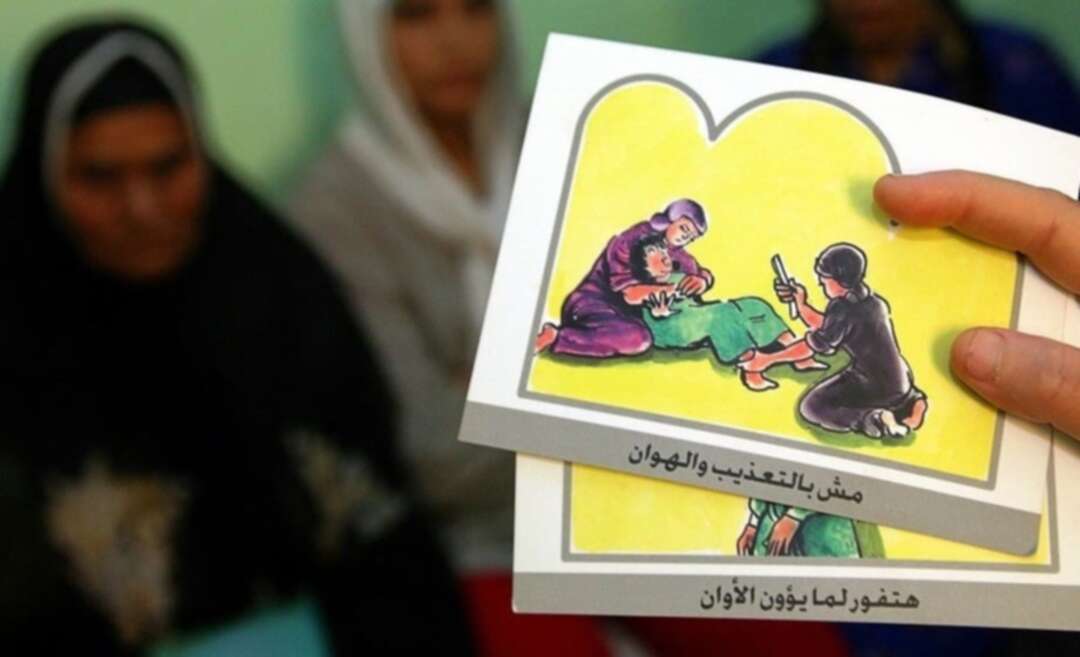-
Egypt toughens punishment for FGM, increases prison term to 20 years

Egypt has toughened penalties for female genital mutilation (FGM), imposing prison terms of up to 20 years in a push to end the ancient practice.
It is the second time Egypt’s parliament has cracked down on FGM - which typically involves the removal of a girl’s external genitalia - but activists remain skeptical about enforcement in a country where cutting is deep-rooted and widespread.
“It’s fantastic news that Egypt has strengthened its law on FGM again. However, unless the government takes it seriously this time, nothing is likely to change,” Brendan Wynne, co-founder of The Five Foundation advocacy group, told the Thomson Reuters Foundation on Monday.
“Medical professionals are still performing FGM in Egyptian clinics - and even offering their services publicly,” said Wynne by email from his group’s New York headquarters.
Most of the 28 countries in Africa where FGM is endemic have banned FGM, although enforcement is generally weak.
World leaders have pledged to end FGM by 2030, but the practice remains as common as it was 30 years ago in Somalia, Mali, Gambia, Guinea Bissau, Chad and Senegal.
In Egypt, the government and civil society groups have tried awareness campaigns, field visits and tougher penalties.
But Wynne said perpetrators are rarely held to account - particularly in rural areas, where FGM is more entrenched.
“We need to see a few high profile cases of doctors being given long sentences and struck off for performing this horrific act of violence. Unless this happens it doesn’t really matter what type of law there is,” he said.
Amendments approved on Sunday include increasing the maximum sentence from seven years and banning medics involved in FGM from practicing for up to five years.
Under the changes, prison terms of five to 20 years will be recommended, depending on who performed surgery and whether it caused permanent damage or death, a government statement said.
Whoever requested the FGM - usually a close family member - will also face imprisonment, according to the amendments, which must still be approved by the president.
Nearly 90 percent of Egyptian women and girls aged 15 to 49 have undergone FGM, according to a 2016 survey by the United Nations, in a ritual practiced widely by Muslims and Christians.
Entessar El-Saeed, a woman’s rights activist and director of the Cairo Foundation for Development and Law, said stricter penalties alone would not sway minds.
“It is a good step, but we are still struggling with a deeply-rooted concept in the Egyptian society and even among some doctors and judges that FGM is not (a) crime,” El-Saeed told the Thomson Reuters Foundation.
Egypt has struggled to stamp out FGM since 2008, when its parliament first passed a law to criminalize a practice some researchers have traced back to Egypt in the fifth-century BC.
source: Reuters
Image source: Reuters
Levant
You May Also Like
Popular Posts
Caricature
BENEFIT AGM approves 10%...
- March 27, 2025
BENEFIT, the Kingdom’s innovator and leading company in Fintech and electronic financial transactions service, held its Annual General Meeting (AGM) at the company’s headquarters in the Seef District.
During the meeting, shareholders approved all items listed on the agenda, including the ratification of the minutes of the previous AGM held on 26 March 2024. The session reviewed and approved the Board’s Annual Report on the company’s activities and financial performance for the fiscal year ended 31 December 2024, and the shareholders expressed their satisfaction with the company’s operational and financial results during the reporting period.
The meeting also reviewed the Independent External Auditor’s Report on the company’s consolidated financial statements for the year ended 31 December 2024. Subsequently, the shareholders approved the audited financial statements for the fiscal year. Based on the Board’s recommendation, the shareholders approved the distribution of a cash dividend equivalent to 10% of the paid-up share capital.
Furthermore, the shareholders endorsed the allocation of a total amount of BD 172,500 as remuneration to the members of the Board for the year ended 31 December 2024, subject to prior clearance by related authorities.
The extension of the current composition of the Board was approved, which includes ten members and one CBB observer, for a further six-month term, expiring in September 2025, pending no objection from the CBB.
The meeting reviewed and approved the Corporate Governance Report for 2024, which affirmed the company’s full compliance with the corporate governance directives issued by the CBB and other applicable regulatory frameworks. The AGM absolved the Board Members of liability for any of their actions during the year ending on 31st December 2024, in accordance with the Commercial Companies Law.
In alignment with regulatory requirements, the session approved the reappointment of Ernst & Young (EY) as the company’s External Auditors for the fiscal year 2025, covering both the parent company and its subsidiaries—Sinnad and Bahrain FinTech Bay. The Board was authorised to determine the external auditors’ professional fees, subject to approval from the CBB, and the meeting concluded with a discussion of any additional issues as per Article (207) of the Commercial Companies Law.
Speaking on the company’s performance, Mr. Mohamed Al Bastaki, Chairman BENEFIT , stated: “In terms of the financial results for 2024, I am pleased to say that the year gone by has also been proved to be a success in delivering tangible results. Growth rate for 2024 was 19 per cent. Revenue for the year was BD 17 M (US$ 45.3 Million) and net profit was 2 Million ($ 5.3 Million).
Mr. Al Bastaki also announced that the Board had formally adopted a new three-year strategic roadmap to commence in 2025. The strategy encompasses a phased international expansion, optimisation of internal operations, enhanced revenue diversification, long-term sustainability initiatives, and the advancement of innovation and digital transformation initiatives across all service lines.
“I extend my sincere appreciation to the CBB for its continued support of BENEFIT and its pivotal role in fostering a stable and progressive regulatory environment for the Kingdom’s banking and financial sector—an environment that has significantly reinforced Bahrain’s standing as a leading financial hub in the region,” said Mr. Al Bastaki. “I would also like to thank our partner banks and valued customers for their trust, and our shareholders for their ongoing encouragement. The achievements of 2024 set a strong precedent, and I am confident they will serve as a foundation for yet another successful and impactful year ahead.”
Chief Executive of BENEFIT; Mr. Abdulwahed AlJanahi commented, “The year 2024 represented another pivotal chapter in BENEFIT ’s evolution. We achieved substantial progress in advancing our digital strategy across multiple sectors, while reinforcing our long-term commitment to the development of Bahrain’s financial services and payments landscape. Throughout the year, we remained firmly aligned with our objective of delivering measurable value to our shareholders, strategic partners, and customers. At the same time, we continued to play an active role in enabling Bahrain’s digital economy by introducing innovative solutions and service enhancements that directly address market needs and future opportunities.”
Mr. AlJanahi affirmed that BENEFIT has successfully developed a robust and well-integrated payment network that connects individuals and businesses across Bahrain, accelerating the adoption of emerging technologies in the banking and financial services sector and reinforcing Bahrain’s position as a growing fintech hub, and added, “Our achievements of the past year reflect a long-term vision to establish a resilient electronic payment infrastructure that supports the Kingdom’s digital economy. Key developments in 2024 included the implementation of central authentication for open banking via BENEFIT Pay”
Mr. AlJanahi concluded by thanking the Board for its strategic direction, the company’s staff for their continued dedication, and the Central Bank of Bahrain, member banks, and shareholders for their valuable partnership and confidence in the company’s long-term vision.
opinion
Report
ads
Newsletter
Subscribe to our mailing list to get the new updates!






















